
The Brittoniclanguages form one of the two branches of the Insular Celtic language family; the other is Goidelic. It comprises the extant languages Breton, Cornish, and Welsh. The name Brythonic was derived by Welsh Celticist John Rhys from the Welsh word Brython, meaning Ancient Britons as opposed to an Anglo-Saxon or Gael.
Cornish is a Southwestern Brittonic language of the Celtic language family. Along with Welsh and Breton, Cornish is descended from the Common Brittonic language spoken throughout much of Great Britain before the English language came to dominate. For centuries, until it was pushed westwards by English, it was the main language of Cornwall, maintaining close links with its sister language Breton, with which it was mutually intelligible, perhaps even as long as Cornish continued to be spoken as a vernacular. Cornish continued to function as a common community language in parts of Cornwall until the mid 18th century, and there is some evidence for traditional speakers of the language persisting into the 19th century.
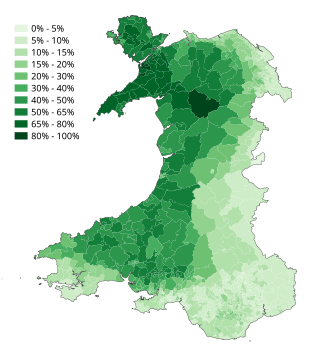
Welsh is a Celtic language of the Brittonic subgroup that is native to the Welsh people. Welsh is spoken natively in Wales, by some in England, and in Y Wladfa.
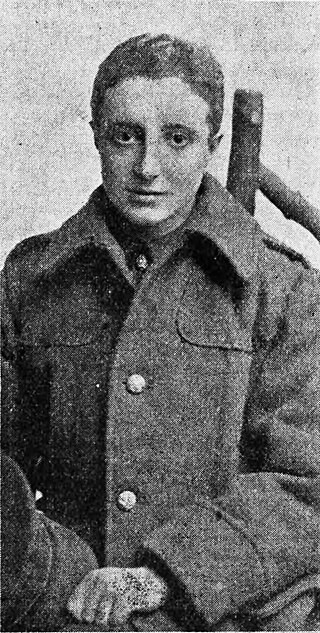
Saunders Lewis was a Welsh politician, poet, dramatist, Medievalist, and literary critic. Born into a Welsh-speaking ministerial family in Greater Liverpool, Lewis studied in a public school growing up. He rediscovered the importance of both his heritage language and cultural roots while serving as a junior officer in the British Army during the trench warfare of the First World War. As a vocal supporter of Welsh nationalism, Lewis believed, however, that language revival, cultural nationalism and the decolonisation of Welsh-language literature, the dramatic arts, and culture needed to precede Welsh devolution or political independence. Otherwise, as Lewis wrote in 1918, "the Welsh Parliament would [only] be an enlarged County Council."

Wales is a country that is part of the United Kingdom. It is bordered by the Irish Sea to the north and west, England to the east, the Bristol Channel to the south, and the Celtic Sea to the south-west. As of the 2021 census, it had a population of 3,107,494. It has a total area of 21,218 square kilometres (8,192 sq mi) and over 2,700 kilometres (1,680 mi) of coastline. It is largely mountainous with its higher peaks in the north and central areas, including Snowdon, its highest summit. The country lies within the north temperate zone and has a changeable, maritime climate. The capital and largest city is Cardiff.

Welsh writing in English, is a term used to describe works written in the English language by Welsh writers.
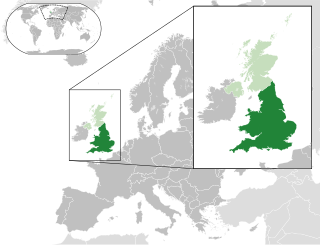
England and Wales is one of the three legal jurisdictions of the United Kingdom. It covers the constituent countries England and Wales and was formed by the Laws in Wales Acts 1535 and 1542. The substantive law of the jurisdiction is English law.
Postcolonial literature is the literature by people from formerly colonized countries, originating from all continents except Antarctica. Postcolonial literature often addresses the problems and consequences of the decolonization of a country, especially questions relating to the political and cultural independence of formerly subjugated people, and themes such as racialism and colonialism. A range of literary theory has evolved around the subject. It addresses the role of literature in perpetuating and challenging what postcolonial critic Edward Said refers to as cultural imperialism.

This is a list of articles about poetry in a single language or produced by a single nation.
Welsh poetry refers to poetry of the Welsh people or nation. This includes poetry written in Welsh, poetry written in English by Welsh or Wales-based poets, poetry written in Wales in other languages or poetry by Welsh poets around the world.

Celtic literature is the body of literature written in one of the Celtic languages, or else it may popularly refer to literature written in other languages which is based on the traditional narratives found in early Celtic literature.
The Wales Book of the Year is a Welsh literary award given annually to the best Welsh and English language works in the fields of fiction and literary criticism by Welsh or Welsh interest authors. Established in 1992, the awards are currently administered by Literature Wales, and supported by the Arts Council of Wales, Welsh Government and the Welsh Books Council.

Literature Wales, formerly named the Academi, is the Welsh national literature promotion agency and society of writers, existing to promote Welsh-language and English-language literature in Wales. It offers bursaries for writing projects, runs literary events and lectures, and provides financial assistance for creative mentoring and other literary-based ventures. The organisation also selects the National Poet for Wales, and manages competitions including Wales Book of the Year, the Cardiff International Poetry Competition, and the Rhys Davies Short Story Competition.
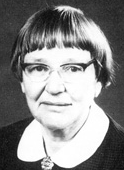
Rachel Bromwich born Rachel Sheldon Amos, was a British scholar. Her focus was on medieval Welsh literature, and she taught Celtic Languages and Literature in the Department of Anglo-Saxon, Norse and Celtic at the University of Cambridge, from 1945 to 1976. Among her most important contributions to the study of Welsh literature is Trioedd Ynys Prydein, her edition of the Welsh Triads.
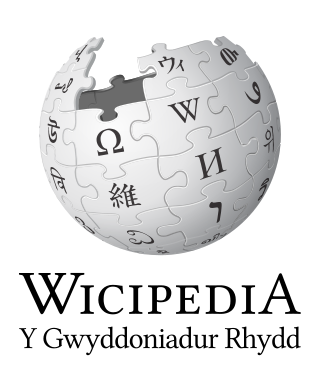
The Welsh Wikipedia is the Welsh-language edition of Wikipedia. This edition was started in July 2003. On 23 June 2007, it reached 10,000 articles, the 66th Wikipedia to do so. On 20 November 2008, it attained 20,000 articles. Less than a year later, on 28 October 2009, it reached 25,000 articles. In July 2013 it reached 50,000 articles and is now the 41st largest Wikipedia edition. It is the only internet resource of its kind in Welsh and has an average of 2.7 million hits every month, making it the most popular Welsh language website. It, therefore, has an important place in Welsh language online culture.
The Welsh Academy Encyclopaedia of Wales, published in January 2008, is a single-volume-publication encyclopaedia about Wales. The Welsh-language edition, entitled Gwyddoniadur Cymru is regarded as the most ambitious encyclopaedic work to be published in Welsh since the 19th century. The English-language and Welsh-language editions were published simultaneously.

Welsh-language literature has been produced continuously since the emergence of Welsh from Brythonic as a distinct language in around the 5th century AD. The earliest Welsh literature was poetry, which was extremely intricate in form from its earliest known examples, a tradition sustained today. Poetry was followed by the first British prose literature in the 11th century. Welsh-language literature has repeatedly played a major part in the self-assertion of Wales and its people. It continues to be held in the highest regard, as evidenced by the size and enthusiasm of the audiences attending the annual National Eisteddfod of Wales, probably the largest amateur arts festival in Europe, which crowns the literary prize winners in a dignified ceremony.

Welsh English comprises the dialects of English spoken by Welsh people. The dialects are significantly influenced by Welsh grammar and often include words derived from Welsh. In addition to the distinctive words and grammar, a variety of accents are found across Wales, including those of North Wales, the Cardiff dialect, the South Wales Valleys and West Wales.

The following outline is provided as an overview of and topical guide to Wales:
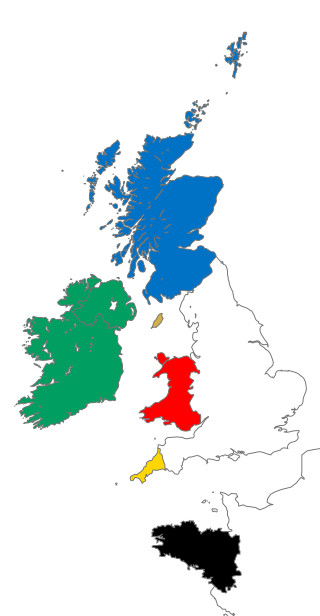
In addition to English, literature has been written in a wide variety of other languages in Britain, that is the United Kingdom, the Isle of Man and the Channel Islands. This includes literature in Scottish Gaelic, Welsh, Latin, Cornish, Anglo-Norman, Guernésiais, Jèrriais, Manx, and Irish. Literature in Anglo-Saxon is treated as English literature and literature in Scots as Scottish literature.











